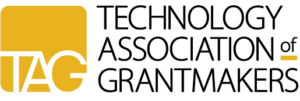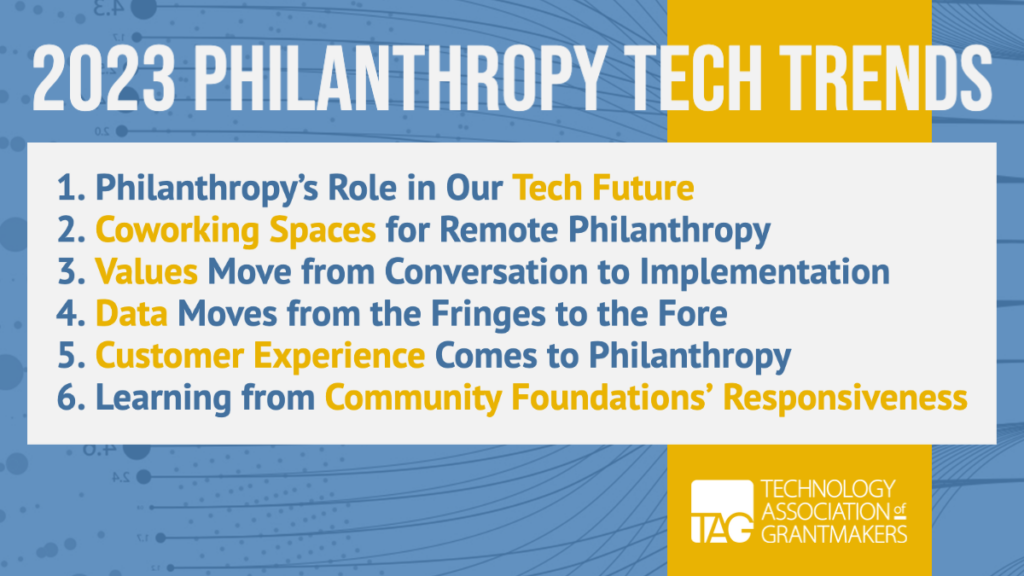
The role of technology and data in defining the scale of philanthropic impact has never been more apparent than now. Throughout the TAG2022 conference, held in San Antonio, Texas last month, questions emerged about our responsibility as grantmakers in stewarding the future of technology and data in the social sector. We witnessed soul-searching sessions regarding the need to move from conversation to collaboration and execution. We saw operations leaders redefining what place and space will mean in the years to come.
Couple these insights with newly published data from the 2022 State of Philanthropy Tech survey, and we see important trends rise to the surface for those leading, staffing, and investing in operations including technology. Below are key themes that you’ll want to watch as the coming year unfolds.
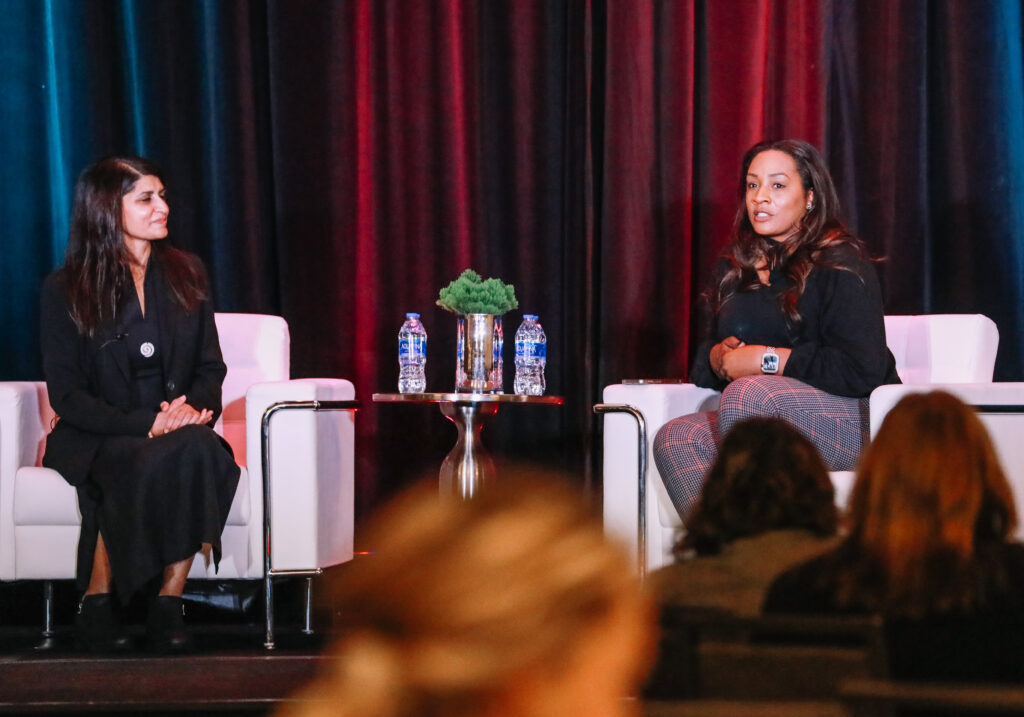
1. Philanthropy’s Role in Our Tech Future
Every keynote event at TAG explored, in some form, philanthropy’s role in the future of tech.
“As a funder, we need to get comfortable with redefining and funding failure. With our eyes wide open and our arms linked with nonprofit partners.”
– Kevin Bromer, Head of Data & Technology Strategy, Ballmer Group
“What would it look like for philanthropy to build a framework for responsible tech with metrics that providers and our own builders could adhere to?”
– Cory Darden Milam, CTO, The Rockefeller Foundation
Watch for these conversations to gain traction in the year ahead.
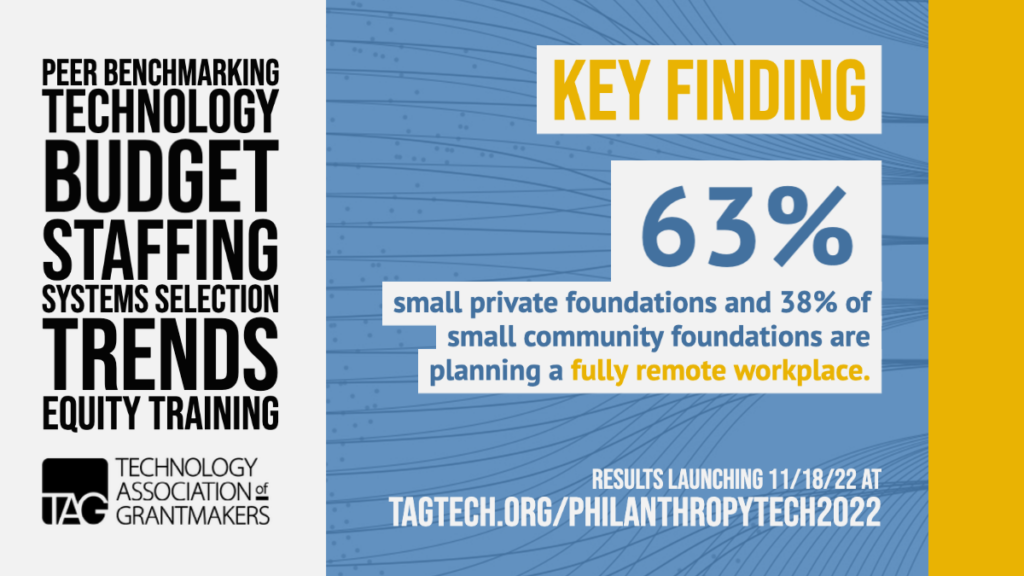
2. Coworking Spaces for Remote Philanthropy
77% of respondents to the 2022 State of Philanthropy Tech survey are planning to move to a hybrid/remote workplace model. But there’s one exception: Small foundations <$25M in assets are planning fully remote operations. In fact, 63% of small private foundations are planning to forego physical spaces altogether and opt for fully-remote operations.
Watch for large foundations with extra space to start offering “hoteling” options for small grantmakers.
3. Values Move from Conversation to Implementation
Moving “beyond conversation” was a key theme in sessions at the TAG2022 conference. As such, we believe that 2023 has the potential to be the year philanthropy takes concrete action.
Specific areas to watch include:
- Resolving the perceived tension between evidence-based grantmaking and values-based grantmaking such as trust-based.
- Providing equity training relevant to one’s unique role. For example, if you work in tech, how can you hold yourself and your vendors accountable for meeting Web Content Accessibility Guidelines (WCAG)?
Expect to see more programs like TAG’s Equity Essentials for philanthropy tech.
4. Data Moves from the Fringes to the Fore
The entire TAG2022 conference in November was abuzz about data. Whether complex data integrations, the need for data literacy, or broader questions around sector wide efforts, everyone was talking about data.
Watch for data literacy programs offered organization-wide in 2023, as well as a rise in new positions for data-related roles. At the macro level, innovation is rampant as various efforts accelerate their work on new models such as the Philanthropic Data Commons (PDC) for social sector data usage.
This space shows more promise than previous years and yet, phrases like “democratizing data” are verging on overuse, so be sure to ask for clarity when making funding decisions.
NEWS: Reflection + recording of the TAG2022 panel session “Who Owns Our Data? Disruption, Reinvention, and Social Sector Data”.
5. Customer Experience Comes to Philanthropy
2023 will be the year that philanthropy defines what it means to “center on the grantee experience.” Beyond the talk, centering means using approaches like:
- Journey-mapping with nonprofits to understand their pain points and value adds.
- Building real-time listening systems (e.g., micro surveys) into your grantmaking tools.
- Improving “user agency” in your tools whether the user is a donor, a nonprofit, or a team member.
Over the coming year, expect product providers to begin building customer feedback loops and more into their software. Grantmakers committed to incorporating customer feedback loops might consider funding this work with their favorite system providers.
Revisit the 2022 series on Changemaker Experience by TAG and Grantbook at https://philanthropycx.org.
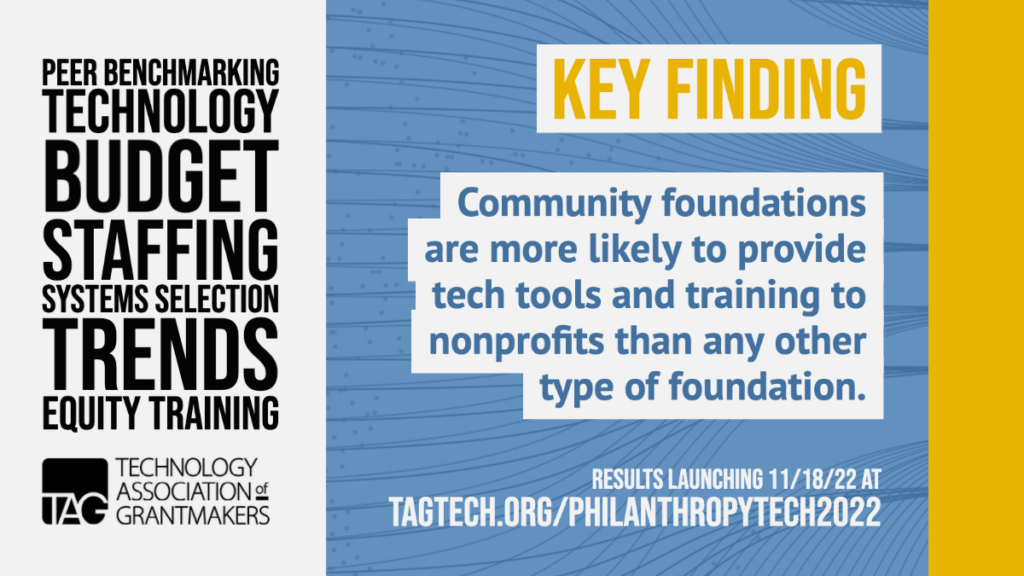
6. Learning from Community Foundations’ Responsiveness
“Doing more with less” has been the recurring subtext of the community foundation story. Coupling data from the 2022 State of Philanthropy Tech survey with session content at TAG2022, we see a pattern of responsiveness to nonprofit needs unique to community foundations:
- Community foundations (39%) are more likely to provide tech training and TA to grantees than any other type of private foundation.
- Well-resourced community foundations (over $1B in assets under management) are significantly more likely to be streamlining grant applications and providing tech or tools to their grantees than other types of large grantmakers. They are also far more likely to be providing a variety of equity training to their tech staff.
- Meanwhile, the IT staffing ratio at community foundations is far less favorable with nearly double the number of staff to IT staff of private foundations.
Watch for case studies emerging about how proximity to community needs drives more than just new programs but also responsive shifts in grantmaking operations.
